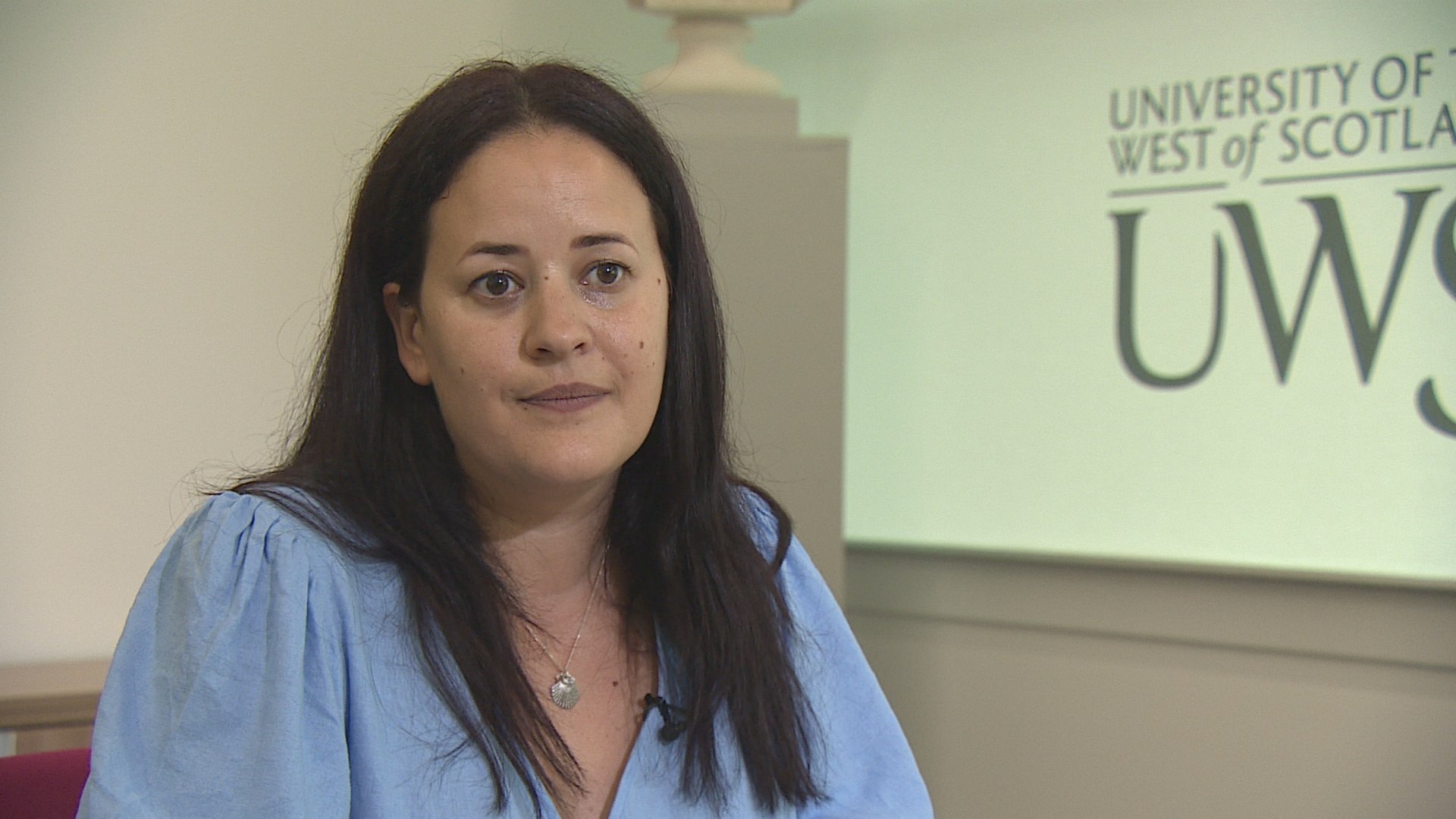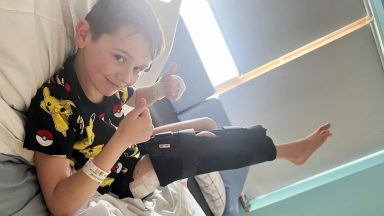Campaigners are urging reforms to benefits rules they say unfairly exclude women with a debilitating menstrual condition.
Premenstrual Dysphoric Disorder is a severe hormone-based mood disorder that typically affects women during the second half of their menstrual cycle. Symptoms can cause extreme mood swings, depression and anxiety.
Sophia Maguire, 23, from Motherwell has been living with the disorder since she first started her period.
She says dealing with the condition throughout her teenage years was extremely challenging.
She told STV News: “I’d be off school for months at a time. I used to think it was bipolar or something before I properly tracked it to my menstrual cycle.
“I was just totally depressed for months and then I’d be happy for months and then I was totally depressed for months.
“That’s the same reason I had to stop drinking at lot of the time as well because it would totally trigger it and there was times where I would drink alcohol, come home, self-harm or try and kill myself and I wouldn’t even remember it.”
 STV News
STV NewsThe condition affects around one in 20 women. Of those, one in three attempt suicide and half self-harm.
Sophia says the condition takes a severe toll on her mental health.
“I feel like there’s only one week a month where I feel like myself – like most of your life isn’t in your control,” she said.
“I feel like I need to keep myself constantly busy or I lose all my progress.”
Sophia fears her condition could impact her future.
“I’ve just finished my masters and I’ve been working alongside uni my entire life, but it gets to that point where I’m like ‘can I handle having a full time job?’ I don’t know.
“It would be amazing to not have to worry about that. That I could actually go into a career and know that I’d be safe and be able to do things that I know I’m capable of, but I might not be fully capable of.”
Now campaigners have criticised the current welfare system for not providing support for those with a fluctuating condition, such as PMDD.
It follows a report by researchers which evaluated the experiences of people who have applied for a social security benefit to support them with their PMDD symptoms.
Currently, in the UK, people can apply for financial support if they live with a condition which impacts their daily living, and they are assessed on their eligibility for support based on a number of criteria, including that the condition must impact someone more than 50% of the time.
 STV News
STV NewsMhairi Campbell, law lecturer at the University of the West of Scotland, said: “Because of the way the system is set up with both adult disability payment and personal independence, there’s this rule that’s called over 50% of the time and what that means is that somebody’s symptoms or their health condition has to affect them over 50% of the time.
“Now with PMDD, we’ve only got one to two weeks, so typically it’s not going over that threshold to qualify for the benefit.
“Some of the issues we have around that is a lot of people are having these PTSD, re-traumatisation symptoms afterwards, so this eligibility criteria needs to be reformed to give a fairer assessment for people with PMDD.”
A Scottish Government spokesperson said: “Premenstrual Dysphoric Disorder (PMDD) can have a huge impact on the welfare of many women in Scotland.
“The more than 50% rule highlighted in this report was considered as part of the Independent Review of Adult Disability Payment, which Scottish Ministers are currently considering.
“Scotland was the first country in the UK to publish a Women’s Health Plan in August 2021. Action has already been taken to raise awareness and support better understanding of PMDD among healthcare professionals, such as by commissioning NHS Education for Scotland to create training on menstrual health, which includes PMDD.”
The Samaritans can be contacted any time, from any phone, free on 116 123, email at jo@samaritans.org, or visit samaritans.org to find your nearest branch. Details of other services and more information can be found on the NHS website here.
Follow STV News on WhatsApp
Scan the QR code on your mobile device for all the latest news from around the country



























